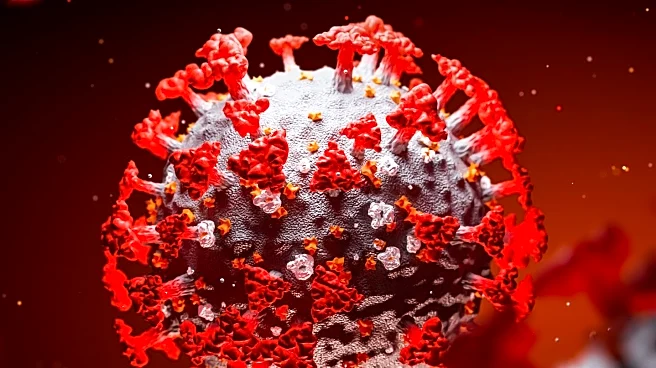What's Happening?
A groundbreaking study published in Nature has uncovered hundreds of new bacteriophages within the human gut, using a large-scale, culture-based approach. The research, led by Jeremy Barr, PhD, at Monash University, reveals that compounds produced by human gut cells
can activate dormant viruses within gut bacteria. This activation rate significantly increases when exposed to human gut cells, suggesting a direct role of human biology in shaping the viral landscape of the gut. The study also identified Stevia, a common sugar substitute, as a leading activator for gut phages. Using CRISPR-based genetic engineering, the team discovered mutations in viral genes that prevent activation, providing insights into how some gut viruses remain permanently dormant.
Why It's Important?
This study is pivotal as it changes the understanding of phage-host interactions within the human gut, potentially influencing gut health and disease progression. The findings could have significant implications for conditions like inflammatory bowel disease (IBD), where inflammation and cell death are prevalent. By understanding how gut viruses are activated, new therapeutic strategies could be developed to manipulate the gut microbiome for health benefits. This research also opens avenues for engineering probiotic strains with tailored viral functions, which could be beneficial in treating various diseases, including cancers.
What's Next?
The study's findings suggest potential for developing microbiome therapeutics targeting gut viruses. Future research may focus on exploring the therapeutic applications of these findings, particularly in relation to inflammatory bowel disease and other gut-related conditions. The role of human biology in influencing viral behavior in the gut could lead to new strategies for managing gut health and disease.
Beyond the Headlines
The discovery of how human gut cells influence viral activation highlights the complex interplay between human biology and the microbiome. This could lead to ethical considerations regarding the manipulation of gut viruses for therapeutic purposes. Additionally, the use of CRISPR-based genetic engineering in this context raises questions about the long-term impacts of altering viral genes within the human microbiome.
















